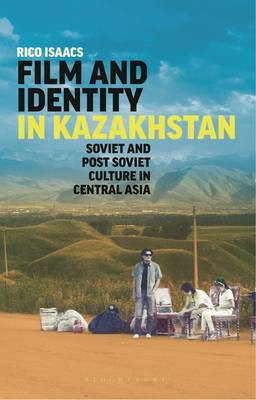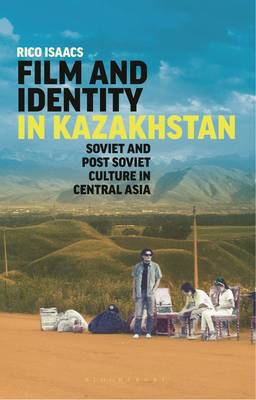
- Retrait gratuit dans votre magasin Club
- 7.000.000 titres dans notre catalogue
- Payer en toute sécurité
- Toujours un magasin près de chez vous
- Retrait gratuit dans votre magasin Club
- 7.000.0000 titres dans notre catalogue
- Payer en toute sécurité
- Toujours un magasin près de chez vous
Film and Identity in Kazakhstan
Soviet and Post-Soviet Culture in Central Asia
Rico Isaacs
Livre broché | Anglais
69,45 €
+ 138 points
Format
Description
Cinema and nationalism are two fundamentally modern phenomena, but how have films shaped our understanding of the creation -the 'imagining' - of Central-Asian nations? Here, Rico Isaacs uses cinema as an analytical lens to explore how the Kazakh national identity has been constructed and contested. Drawing on an analysis of Kazakh films from the last century, and featuring new interviews with directors and critics involved in the Central Asian film industry, his book traces the construction of nationalism within Kazakh cinema from the country's inception as a Soviet Republic to a modern independent nation.Isaacs identifies four narratives since the collapse of the Soviet Union: a warrior-like 'ethnic' narrative rooted in the 18th Century struggles against the Mongolian Oirat tribes; a 'civic' inspired narrative cemented in the Stalinist deportations of the 1930s and 40s; a religious narrative founded within the mystic and philosophical religion of Tengrism and the cult of the Sky God; and a socio-economic narrative which roots Kazakh nationhood and identity in contemporary social divisions, the lived day-to-day experiences of ordinary citizens and the struggles they face with authority.
These last two tropes demonstrate how cinema has emerged as a site of dissent against the country's authoritarian regime under President Nazarbayev. Film and Identity in Kazakhstan advances our understanding of Kazakhstan and nationalism by demonstrating the multiple and inessential character of each, and illustrates the important role of cinema in contesting political power in the post-Soviet space.
These last two tropes demonstrate how cinema has emerged as a site of dissent against the country's authoritarian regime under President Nazarbayev. Film and Identity in Kazakhstan advances our understanding of Kazakhstan and nationalism by demonstrating the multiple and inessential character of each, and illustrates the important role of cinema in contesting political power in the post-Soviet space.
Spécifications
Parties prenantes
- Auteur(s) :
- Editeur:
Contenu
- Nombre de pages :
- 350
- Langue:
- Anglais
Caractéristiques
- EAN:
- 9781350252295
- Date de parution :
- 24-03-22
- Format:
- Livre broché
- Format numérique:
- Trade paperback (VS)
- Dimensions :
- 140 mm x 216 mm
- Poids :
- 403 g

Les avis
Nous publions uniquement les avis qui respectent les conditions requises. Consultez nos conditions pour les avis.






